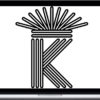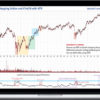Wyck Analytics – Using Technical Analysis And Wyck Tools Together
Price. Volume. Time. Sentiment. Using Wyck analysis to recognize and correctly interpret different patterns of these variables – representing the flow of supply and demand – are at the heart of the Wyck Method. Some experienced Wyckians trade successfully using these factors alone. Many others use Wyck technical analysis tools to help decide when to enter and exit trades. Most traders know that some indicators work better in consolidations (e.g., oscillators), while others work better when a trend is underway (e.g., moving averages).
The Wyck Method’s framework for understanding the ever-changing market structure can help traders drill down to a deeper level to deploy different technical analysis tools, in the most appropriate environments. In this three-part webinar series, Roman Bogomazov will demonstrate how using Wyck analysis can help traders decide which technical analysis tools to use during different Wyck Phases and events in both trading ranges and trending environments.
What You’ll Learn In Using Technical Analysis And Wyck Tools Together?
Consolidations: Wyck traders often focus on entering trades only when the price is poised to leave a trading range. However, many excellent opportunities for shorter-term trades occur repeatedly within consolidations!
To demonstrate this, Roman describes the unfolding of Wyck Phases in trading ranges (both accumulation and distribution), including Wyck events and their characteristic price and volume signatures, as well as trading tactics geared to these predictable events. Then Corey demonstrates WHICH indicators are most appropriate for each Wyck Phase, and how best to use these indicators, both to confirm (or not!) our structural analysis and even to alert us to additional opportunities or possible dangers!
Trends: Once a trend is underway, we need to know what scenarios to expect in order to manage our trades or to initiate new positions within the trend. In this series, Roman and Corey examine trending price and volume behaviors from a Wyck perspective (Roman), and then highlight which indicators are the most reliable to use in trending environments and how to extract high-probability trading signals from them (Corey).
Indicators in Context: Corey has been rigorously studying and screening numerous indicators in relation to Wyck market structure; here he presents only those very few that have made the cut, including trending, momentum and oscillating indicators. Throughout these sessions we use a Wyck framework to provide meaningful contextual interpretations of indicator signals, discussing not only when to use which indicators, but also when to pay attention to and when to disregard the signals.
Case studies: Roman and Corey present a variety of case studies illustrating the effectiveness of the Wyck Plus approach in multiple time frames, from intra-day to weekly.







